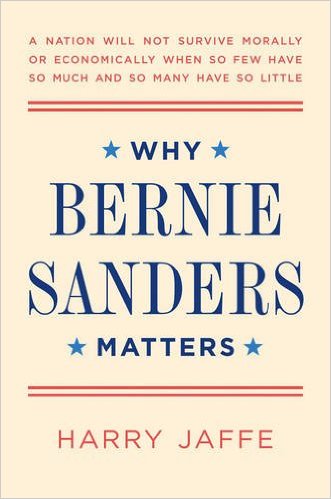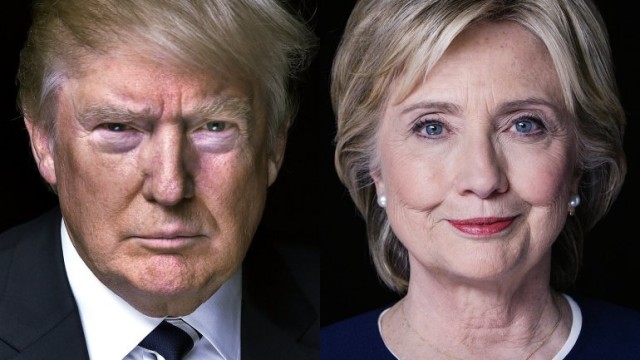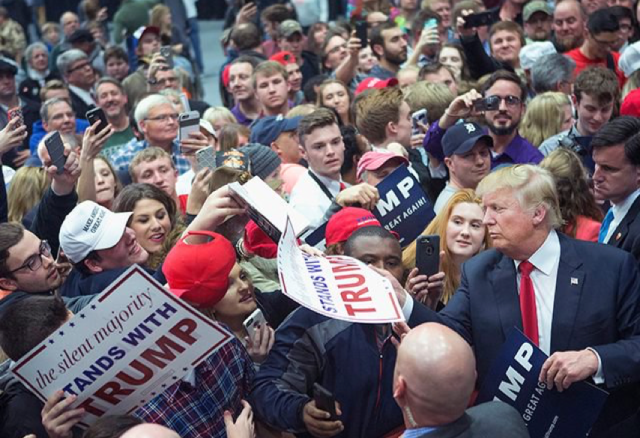Why Bernie Sanders [and Donald Trump] Matter
 WASHINGTON, D.C. /PRNewswire-USNewswire/ — Bernie Sanders’ appeal to young, often first time voters, is not a mystery to Harry Jaffe, whose recent book “Why Bernie Sanders Matters” was the subject of a Focus Washington interview with Chuck Conconi. Jaffe said the youthful voters are “attracted to” the VermontSenator’s authenticity.
WASHINGTON, D.C. /PRNewswire-USNewswire/ — Bernie Sanders’ appeal to young, often first time voters, is not a mystery to Harry Jaffe, whose recent book “Why Bernie Sanders Matters” was the subject of a Focus Washington interview with Chuck Conconi. Jaffe said the youthful voters are “attracted to” the VermontSenator’s authenticity.
In that, Jaffe explained, Sanders has “a commonality with (Donald) Trump” in that neither are part of the establishment. The comparison between the two maverick candidates, however, Jaffe points out is that Sanders is a “Populist Socialist,” while Trump is “Populist Fascist.”
In a comparison with the campaign style of Hillary Clinton, with whom he is vying for the Democratic Party nomination to run for president, Jaffe said Sanders says what he thinks and if you don’t agree with it, don’t vote for him. Clinton, on the other hand, he continues, first factors what her handlers think, then what her husband, former President Bill Clinton, thinks and then what she thinks before making a statement. Jaffe said younger voters can detect that difference.
Jaffe also said that the black vote is not monolithic and that southern African Americans — largely rural, more religious and conservative — are quite different from their northern counterparts, who are urban and prioritize good jobs and making a living. The contention is that while Clinton runs exceptionally well with African Americans in the southern states, she might not do as well among northern blacks in the upcoming Ohio and Illinois primaries.
A Washington Magazine editor at large, Jaffe, who has worked on books by educator Michele Rhee and former congresswoman Gabby Gifford, said that pollsters and much of the media were surprised by Sanders upset victory in the Michigan primary. Jaffe said he wasn’t surprised and doesn’t think Sanders was surprised either. He contends that Sanders will also do well in the upcoming Ohio and Illinois primaries because Sanders, who consistently votes against international trade agreements, has always been a spokesman for the working class who see their jobs outsourced overseas, and that they are not getting paid as well as they once were. They like his opposition to trade agreements, a factor that political pundits said was a major part of his Michigan victory.
Harry Jaffe provides interesting insights on democratic voters, upcoming primaries and even some surprises about the candidate himself as a college student during the 1960s. Bernie Sanders champions voters who feel like they don’t matter in Washington; and because he lets them know that they do matter, Bernie Sanders’Presidential bid matters.
See the full interview: http://www.focuswashington.com/2016/03/11/why-bernie-sanders-matters/
To learn more about the author, see his website at: http://www.harryjaffe.com/
About MSLGROUP
MSLGROUP is Publicis Groupe’s strategic communications and engagement group, advisors in all aspects of communication strategy: from consumer PR to financial communications, from public affairs to reputation management and from crisis communications to experiential marketing and events. With more than 3,000 people across close to 100 offices worldwide, MSLGROUP is also the largest PR network in Europe, fast-growing China and India. The group offers strategic planning and counsel, insight-guided thinking and big, compelling ideas – followed by thorough execution.
www.mslgroup.com | Twitter | Facebook | LinkedIn | YouTube | Slideshare | Pinterest
About Publicis Groupe
Publicis Groupe [Euronext Paris FR0000130577, CAC 40] is a global leader in marketing, communication, and business transformation. In a world marked by increased convergence and consumer empowerment, Publicis Groupe offers a full range of services and skills: digital, technology & consulting with Publicis.Sapient (SapientNitro, Sapient Global Markets, Sapient Government Services, Razorfish Global, DigitasLBi, Rosetta) – the world’s largest most forward-thinking digitally centered platform focused exclusively on digital transformation in an always-on world – as well as creative networks such as BBH, Leo Burnett, Publicis Worldwide, Saatchi & Saatchi, public affairs, corporate communications and events with MSLGROUP, ad tech solutions with VivaKi, media strategy, planning and buying through Starcom MediaVest Group and ZenithOptimedia, healthcare communications, with Publicis Healthcare Communications Group (PHCG), and finally, brand asset production with Prodigious. Present in 108 countries, the Groupe employs more than 76,000 professionals.





